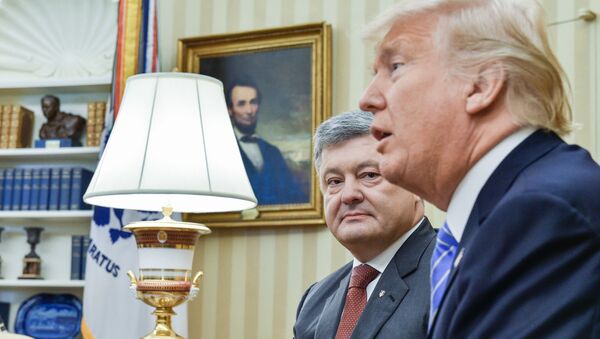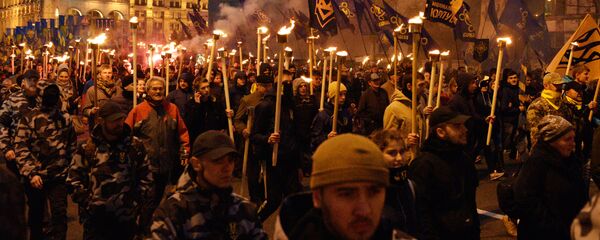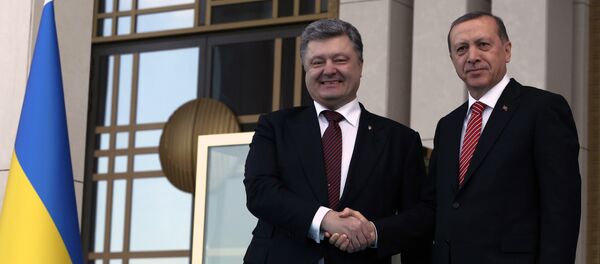Crimea blockade organizer Lenur Islyamov recently announced that Ukrainian nationalists were making preparations for a "massive march" on Crimea, uniting "all those who consider Crimea to be part of Ukraine," and marching to the Ukrainian capital of Simferopol. "They [local residents] would not do anything to us," the radical said.
Asked to comment on Islyamov's remarks, Jan Miklas, a Prague-based political scientist, told Sputnik Czech that Ukrainian extremists shouldn't hope to receive any sort of warm welcome if they actually make their way to Crimea.
At the same time, it's not clear who Islyamov's target audience is, the observer said. "The Ukrainian army, notwithstanding the supply of US weapons, is in a deplorable state, and continues to rely on extremist paramilitaries like the Azov Regiment, who cannot hold a candle to Russia's military power. In any hypothetical attempt by Ukraine to return Crimea by force, Russia would be able to completely paralyze the Ukrainian army in the space of a few hours, before any Ukrainian troops even cross the border into Crimea."
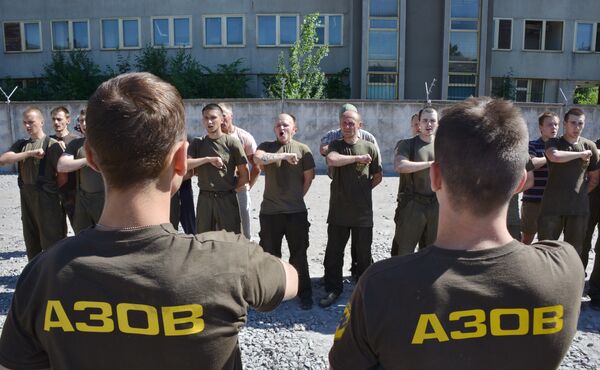
"What I saw was something completely different. Mosques are being built for the peninsula's Tatar community; there are Tatar cultural centers. I can hardly imagine any support for Lenur Islyamov's extremist and hateful initiatives from the Tatar community. The same is true of the self-proclaimed Mejlis movement, a Kiev-backed group trying to incite Tatars against Russia."
Kiev Nationalists Should Expect Hostile 'Welcome'
As far as Crimea's residents were concerned, and how they would react to nationalist activists showing up to declare that 'Crimea is Ukrainian', Miklas said that he wouldn't like to be there to witness that event. "I think Ukrainian nationalists should expect an extremely hostile reception. I cannot exclude the possibility of skirmishes breaking out between demonstrators and the local population."
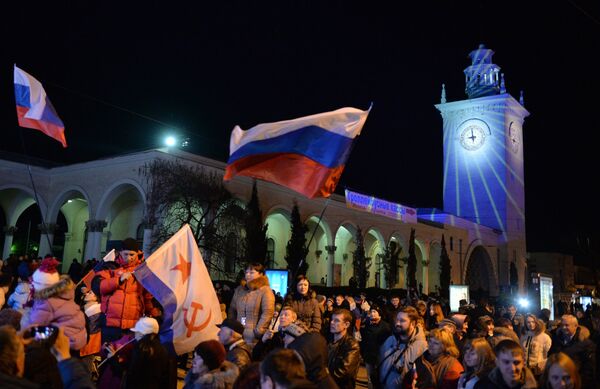
War Danger
In a recent speech before the Council of Europe, Czech President Milos Zeman said that Russia and Ukraine should begin negotiations on Crimea, adding that Moscow might offer Kiev some sort of financial compensation, such as discount oil and gas, in exchange for official recognition of Crimea's status. The alternative, according to Zeman, was war in Europe. Asked whether the president was right to be concerned, Miklas noted that unfortunately, it was a possibility.
"At the moment, the danger of direct military clashes between Russia, Ukraine and the West over Crimea is low," the observer noted. "However, it could grow to become more likely in the future. President Zeman's fears are justified, because in the US's long term strategy, Ukraine is a kind of 'Trojan horse' meant to weaken Russia's influence in Eurasia. The military option is there, and Crimea may become the pretext to start it. It's no coincidence that the US is building a military base in the Kherson region near Crimea and is arming Ukraine."
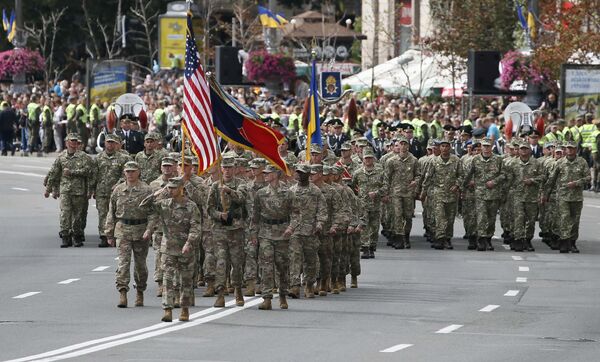
"Why are they doing this? To defend against so-called 'Russian aggression'?" Miklas asked. "No, it's done to ensure that in the future the US will have a free hand to start a military conflict with Russia. In this scenario, modern Ukraine would become the battlefield. The US is prepared to fight Russia 'to the last Ukrainian'. The fact that the current government in Kiev [approves] of this activity and attempts to indoctrinate its own people into fanatical hatred of Russia is a fatal, particularly for the country's own future."
Moscow Has No Historical Reason to 'Compensate' Kiev
The analyst suggested that from the historical point of view, Ukraine has no legitimate claim to the peninsula, since it was transferred to the Ukrainian Soviet Socialist Republic "on the whim" of Soviet leader Nikita Khrushchev in 1954 "without any justification."
Finally, Miklas stressed that it was important to consider what Crimea's inhabitants themselves want. "I think the referendum in the spring of 2014 was enough to answer this question, even if the West does not recognize this answer. I had this confirmed to me during my own trip to Sevastopol, when two women confirmed to me that the situation in March 2014 was very tense. [Ukrainian] Navy ships stood in sight of Sevastopol, and Russia's intervention was seen by locals as a rescue mission. These women told me that if the Ukrainian army broke into Crimea, they would have taken up arms to fight them."
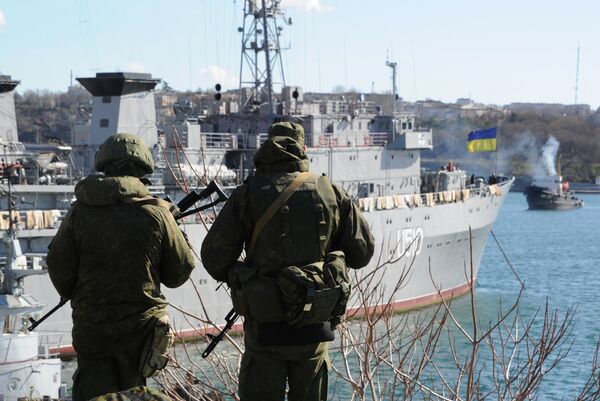
Crimea broke off from Ukraine and rejoined Russia in March 2014 following the Maidan coup in Kiev in February of that year. Concerned by the new authorities' anti-Russian attitudes, officials in the majority ethnic-Russian peninsula organized a referendum on its status. Amid voter turnout of over 80%, more than 95% of Crimea's residents voted to rejoin Russia.
